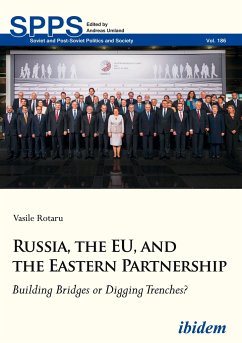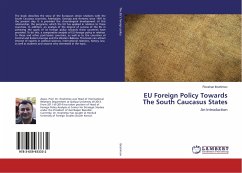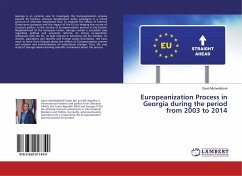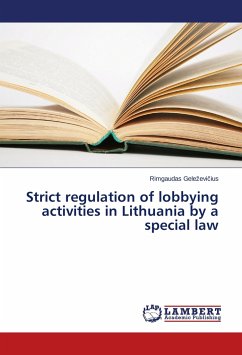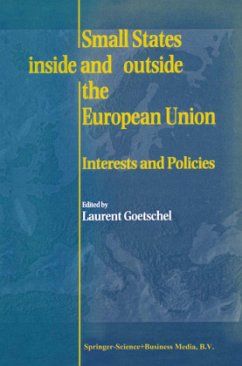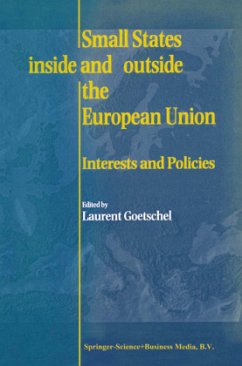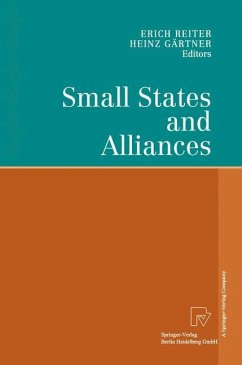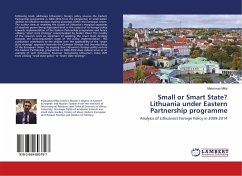
Small or Smart State? Lithuania under Eastern Partnership programme
Analysis of Lithuania's Foreign Policy in 2009-2014
Versandkostenfrei!
Versandfertig in 6-10 Tagen
33,99 €
inkl. MwSt.

PAYBACK Punkte
17 °P sammeln!
Following book addresses Lithuania's foreign policy vis-à-vis the Eastern Partnership programme in 2009-2014 from the perspective of small states' abilities to influence decision-making processes within the European Union. The author aims at revealing the puzzle of Lithuania's marginal capacities of absolute power being disproportional to the output of its foreign policy towards implementation of the Eastern Partnership programme and hence utilising "smart state strategy" conceptualised by Anders Wivel. The novelty of the research rests on expansion of applying the smart state strategy toward...
Following book addresses Lithuania's foreign policy vis-à-vis the Eastern Partnership programme in 2009-2014 from the perspective of small states' abilities to influence decision-making processes within the European Union. The author aims at revealing the puzzle of Lithuania's marginal capacities of absolute power being disproportional to the output of its foreign policy towards implementation of the Eastern Partnership programme and hence utilising "smart state strategy" conceptualised by Anders Wivel. The novelty of the research rests on expansion of applying the smart state strategy towards the post-negotiation stage of the policy implementation. This publication contributes to the debate over the applicability of the "smart state strategy" approach towards the Common Foreign and Security Policy of the European Union, by arguing that Lithuania's foreign policy vis-à-vis the Eastern Partnership programme in 2009-2014 does indeed serve as an example of such behaviour, however recognising Lithuania's initial shift from utilising "small state policy" to "smart state strategy".



